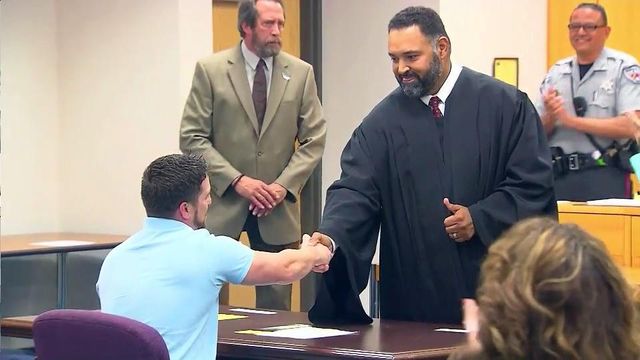State task force calls for more drug courts, opioid treatment
North Carolina needs to invest in more specialized courts to handle troubled veterans and drug offenders with mental health problems, a state task force said Thursday.
Posted — UpdatedGov. Pat McCrory appointed the Task Force on Mental Health and Substance Abuse last summer with the goal of getting various state agencies, the judicial system and advocacy groups to devise a plan for providing the most effective and efficient mental health and addiction services to those in need to divert them from jail and into treatment.
"It’s the first time all branches of government have come together to work on such a tough, systematic problem,” said Secretary of Health and Human Services Rick Brajer, a co-chairman of the group.
"When it comes to mental health, the reality is that 20 percent of all adults are suffering from some type of mental disorder," Brajer said, adding that 20 million Americans are in recovery for substance abuse problems. "Those are doctors, those are policemen, those are teachers in recovery."
McCrory has been pushing for years for more alternatives to jailing people whose mental health or substance abuse problems lead them to commit crimes or to present a danger to themselves or others.
"We just locked them up, and we're finding that doesn't work," he said. "That works in the short term for society, but it doesn't work in the long term for that individual or society."
"Those people who are going through addiction and mental health problems, we need to do everything we can to encourage them, but they're also going to have a responsibility," McCrory said.
The House budget, which was passed Thursday, included $20 million in one-time funds to support some of the task force's objectives, but McCrory said that isn't enough and that the state needs to commit itself to addressing the problem year after year.
"It's time to say we haven't been doing it right in this country, in this state, and we're going to try something new," the governor said.
• Credits
Copyright 2024 by Capitol Broadcasting Company. All rights reserved. This material may not be published, broadcast, rewritten or redistributed.





